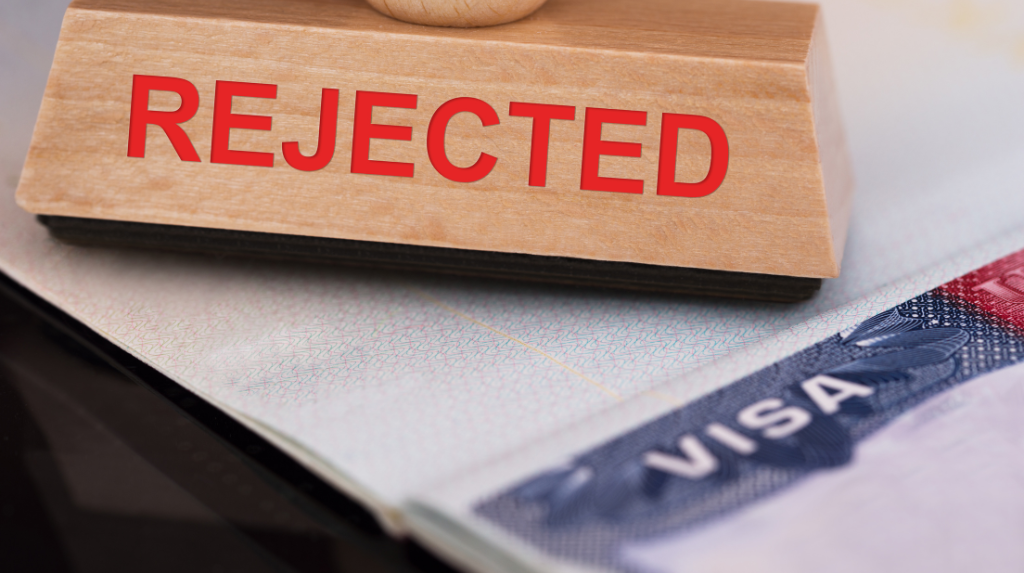Discover the most common Malta visa rejection reasons and learn how to avoid them. This comprehensive guide provides expert insights, helpful tips, and practical advice for a successful visa application process.
Are you planning to visit Malta? Navigating the visa application process can be complex and daunting. Understanding the common reasons for visa rejections is crucial to ensure a smooth and successful application. In this article, we will delve into the Malta visa rejection reasons, providing you with a comprehensive guide to help you avoid pitfalls and increase your chances of obtaining a visa to this beautiful Mediterranean country.
Common Malta Visa Rejection Reasons Explained
Malta, a picturesque island country in the Mediterranean, attracts numerous tourists and travelers each year. However, to enter Malta, you must obtain a visa unless you are a citizen of a visa-exempt country. Unfortunately, many visa applications are rejected due to various reasons. Understanding these reasons is crucial to ensure a successful visa application process.
Insufficient Financial Proof
One of the most common Malta visa rejection reasons is the inability to provide sufficient financial proof. The Maltese authorities need assurance that you have adequate funds to support yourself throughout your stay. Submitting bank statements, income tax returns, and other relevant financial documents can demonstrate your financial stability and ability to cover all expenses during your visit.
Incomplete or Incorrect Application Form
A small mistake or oversight in your visa application form can lead to rejection. It is essential to carefully fill out the application form, providing accurate and complete information. Ensure that you double-check all details, including your personal information, travel dates, and purpose of visit. Any inconsistencies or errors may raise doubts about your credibility and could result in a visa rejection.
Lack of Travel Insurance
Travel insurance is a crucial requirement for a Malta visa application. Failure to provide proof of adequate travel insurance coverage can lead to rejection. Make sure to purchase comprehensive travel insurance that covers medical emergencies, trip cancellations, and repatriation. Include the insurance details and coverage in your application to avoid rejection due to this reason.
Failure to Demonstrate Ties to Home Country
When applying for a Malta visa, it is essential to demonstrate strong ties to your home country. This includes showing proof of employment, property ownership, family connections, or any other significant commitments that would motivate you to return home after your visit to Malta. Failure to provide convincing evidence of your ties may raise concerns about your intention to stay longer or illegally in Malta, resulting in visa rejection.
Inadequate Travel Itinerary
A well-planned travel itinerary is essential for a successful Malta visa application. Your itinerary should include details of your accommodation, transportation, and planned activities during your stay. A vague or incomplete itinerary may raise suspicions about the genuineness of your trip, leading to visa rejection. Provide a detailed itinerary with confirmed bookings to strengthen your application.
Insufficient Accommodation Arrangements
Inadequate proof of accommodation arrangements can be a reason for visa rejection. Ensure that you have confirmed hotel reservations or a letter of invitation from your host if you are staying with family or friends. Include these documents in your application to demonstrate that you have suitable and legitimate accommodation arrangements during your stay in Malta.
Lack of Genuine Purpose of Visit
When applying for a Malta visa, you must clearly state the purpose of your visit. Whether it’s tourism, business, education, or any other reason, make sure to provide all necessary supporting documents to validate your purpose. Failure to demonstrate a genuine purpose of visit may lead to visa rejection. Be transparent and provide all relevant documents to substantiate your intentions.
Inadequate Supporting Documents
Supporting documents play a crucial role in the visa application process. Failure to provide sufficient and authentic supporting documents can result in rejection. Depending on the purpose of your visit, you may need to submit documents such as flight reservations, hotel bookings, invitation letters, bank statements, employment letters, and educational certificates. Ensure that you submit all required documents to strengthen your application.
Inconsistencies in Information
Consistency in the information provided throughout your visa application is vital. Any inconsistencies, discrepancies, or contradictory details may raise doubts about your credibility and honesty, leading to visa rejection. Double-check all the information you provide and ensure that it aligns with your supporting documents.
Previous Visa Overstay
If you have a history of overstaying on previous visas or violating immigration laws, it can negatively impact your Malta visa application. Immigration authorities closely scrutinize the travel history of applicants. If you have previously overstayed your visa or violated any immigration rules, it may raise concerns about your intention to comply with the visa regulations in Malta.
Criminal Record or Security Concerns
A criminal record or any security concerns can result in visa rejection. The Maltese authorities conduct thorough background checks to ensure the safety and security of the country. If you have a criminal record or any affiliations that raise security concerns, it may lead to the denial of your visa application.
Lack of Funds for the Entire Trip
Apart from demonstrating sufficient financial proof, it is crucial to show that you have enough funds to cover the entire duration of your stay in Malta. If the authorities believe that you do not have adequate funds to sustain yourself, your visa application may be rejected. Ensure that you provide a realistic budget and demonstrate that you can afford your stay in Malta.
Poor Interview Performance
In some cases, the Malta visa application process may involve an interview. A poor performance during the interview can be a reason for visa rejection. Prepare well in advance, research about Malta, and anticipate potential questions. Practice your answers to present a confident and genuine demeanor during the interview.
False or Fraudulent Documents
Submitting false or fraudulent documents is a serious offense and can lead to severe consequences, including visa rejection and potential bans from entering Malta. Always provide authentic and genuine documents to support your application. The authorities have advanced methods to detect fraudulent documents, so it is best to be honest and transparent throughout the application process.
Overstaying on Previous Visas
If you have previously overstayed on a Malta visa or violated the terms of your previous visas, it can significantly impact your current visa application. Overstaying raises concerns about your compliance with visa regulations, making it challenging to obtain a visa in the future. It is essential to respect the terms and conditions of your visas and avoid overstaying.
Failure to Meet Health Requirements
Meeting health requirements is crucial for a successful visa application. Failing to meet the necessary health standards, including vaccinations or medical examinations, can lead to rejection. Research and ensure that you meet all the health requirements before applying for a Malta visa.
Incomplete or Inaccurate Sponsorship Details
If you are being sponsored by a third party or organization, it is crucial to provide accurate and complete sponsorship details. Incomplete or inaccurate information can raise doubts about the legitimacy of the sponsorship, leading to visa rejection. Ensure that you provide all the necessary documentation and clarify the relationship between you and your sponsor.
Inability to Prove Return/Departure Plans
To obtain a Malta visa, you must demonstrate your intention to return to your home country or proceed to another destination after your visit. Inability to provide proof of return or departure plans can result in visa rejection. It is essential to have confirmed flight reservations or a clear itinerary showing your next destination after Malta.
Lack of Strong Ties to Home Country
As mentioned earlier, demonstrating strong ties to your home country is crucial for a successful visa application. Lack of such ties can raise concerns about your intention to stay longer or illegally in Malta. Provide proof of your commitments, such as employment contracts, property ownership, or family ties, to assure the authorities that you have strong reasons to return home.
Visa Category Incompatibility
Selecting the correct visa category is essential. Applying for the wrong visa category can result in rejection. Study the different visa categories available for your purpose of visit and choose the most appropriate one. Ensure that you meet all the requirements specified for the selected visa category.
Incomplete or Inaccurate Travel History
Your travel history is an important aspect of your visa application. Incomplete or inaccurate travel history can raise doubts about your travel experience and intentions. Provide a detailed and accurate account of your previous travels, including dates, destinations, and visa details, if applicable.
Insufficient Knowledge of the Trip
When applying for a Malta visa, you must have a thorough understanding of your trip. Inability to provide sufficient knowledge about your itinerary, purpose, or any other details may raise suspicions. Research and gather all the necessary information before submitting your application to avoid rejection due to insufficient knowledge.
Non-Compliance with Immigration Laws
Failing to comply with immigration laws, either in Malta or in your home country, can lead to visa rejection. Any record of previous violations or non-compliance may negatively impact your application. It is crucial to abide by immigration laws and regulations to avoid jeopardizing your chances of obtaining a Malta visa.
Understanding the common Malta visa rejection reasons is vital for a successful visa application process. By familiarizing yourself with these reasons and taking necessary precautions, you can enhance your chances of obtaining a visa to Malta. Ensure that you provide accurate and complete information, submit all required documents, and follow the guidelines provided by the Maltese authorities. By doing so, you can avoid unnecessary delays and increase your chances of a positive outcome.
Frequently Asked Questions
Can I reapply for a Malta visa after rejection?
Yes, you can reapply for a Malta visa after rejection. However, it is crucial to address the reasons for rejection and rectify any issues before submitting a new application. Analyze the rejection letter or communication from the authorities to understand the specific reasons for rejection and take necessary steps to improve your application.
Is it necessary to hire a visa consultant to increase my chances of approval?
While hiring a visa consultant is not mandatory, it can be beneficial in certain cases. A visa consultant can provide expert guidance, review your application, and offer valuable advice to increase your chances of approval. However, it is essential to choose a reputable and experienced consultant to ensure reliable assistance.
How long does it take to process a Malta visa application?
The processing time for a Malta visa application can vary depending on various factors, including the type of visa, the volume of applications, and the time of the year. On average, it takes approximately 15 to 30 working days for a visa application to be processed. However, it is advisable to apply well in advance to allow sufficient time for processing.
What are the common mistakes to avoid during a Malta visa interview?
During a Malta visa interview, it is important to be prepared and avoid common mistakes. Some key points to remember include:
- Dress appropriately and maintain a professional appearance.
- Be confident, clear, and concise in your answers.
- Provide honest and consistent information.
- Demonstrate knowledge about your trip and the purpose of the visit.
- Avoid making exaggerated claims or providing false information.
- Answer questions directly and avoid unnecessary elaboration.
Does previous travel history impact the visa application decision?
Yes, previous travel history can impact the visa application decision. Immigration authorities consider your travel history to assess your travel experience, compliance with visa regulations, and overall credibility. If you have a positive travel history with no violations or overstays, it can strengthen your application. Conversely, a history of visa rejections, overstays, or violations can raise concerns and potentially lead to rejection.
What should I do if my Malta visa application gets rejected?
If your Malta visa application gets rejected, it is essential to review the reasons for rejection and take appropriate steps. You can consider reapplying after addressing the specific issues that led to the rejection. Analyze your application, gather additional supporting documents if necessary, and ensure that you provide accurate and complete information in your new application. Seeking professional advice from a visa consultant or lawyer can also be helpful in improving your chances of approval.
Do you need support with your Maltese visa application?
Contact our team of skilled immigration lawyers to discuss your visa and immigration needs.
Call us on +234 812 5505 986 or WhatsApp us at +234 818 1547 085 for immediate assistance with your situation. We are available to assist you in person, over the phone, or online.





